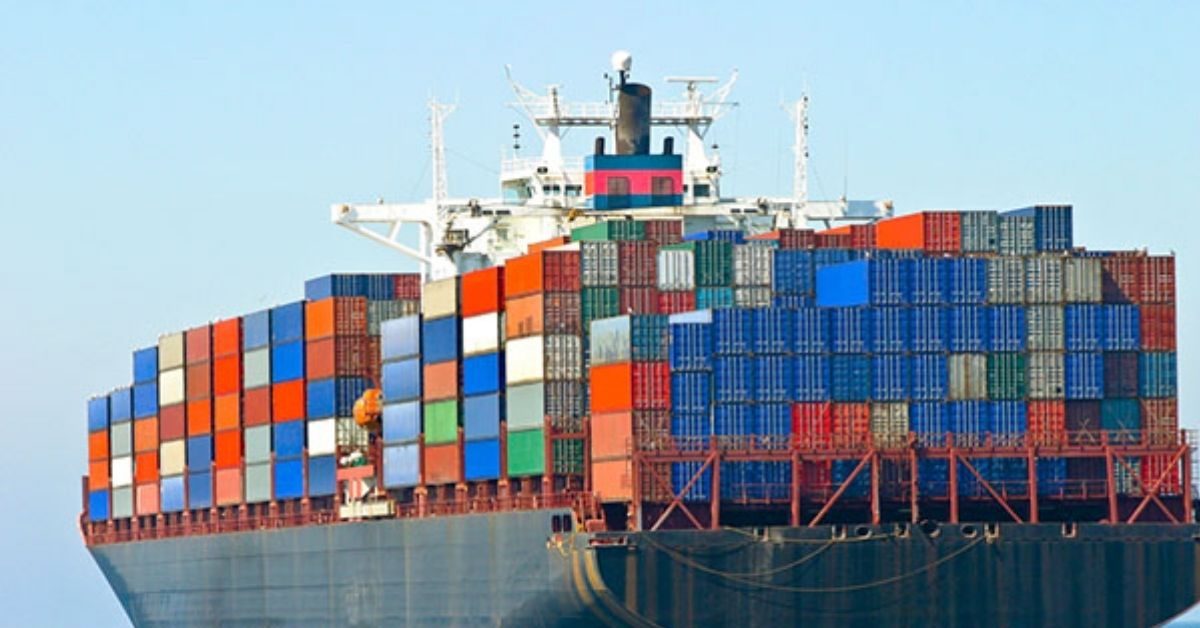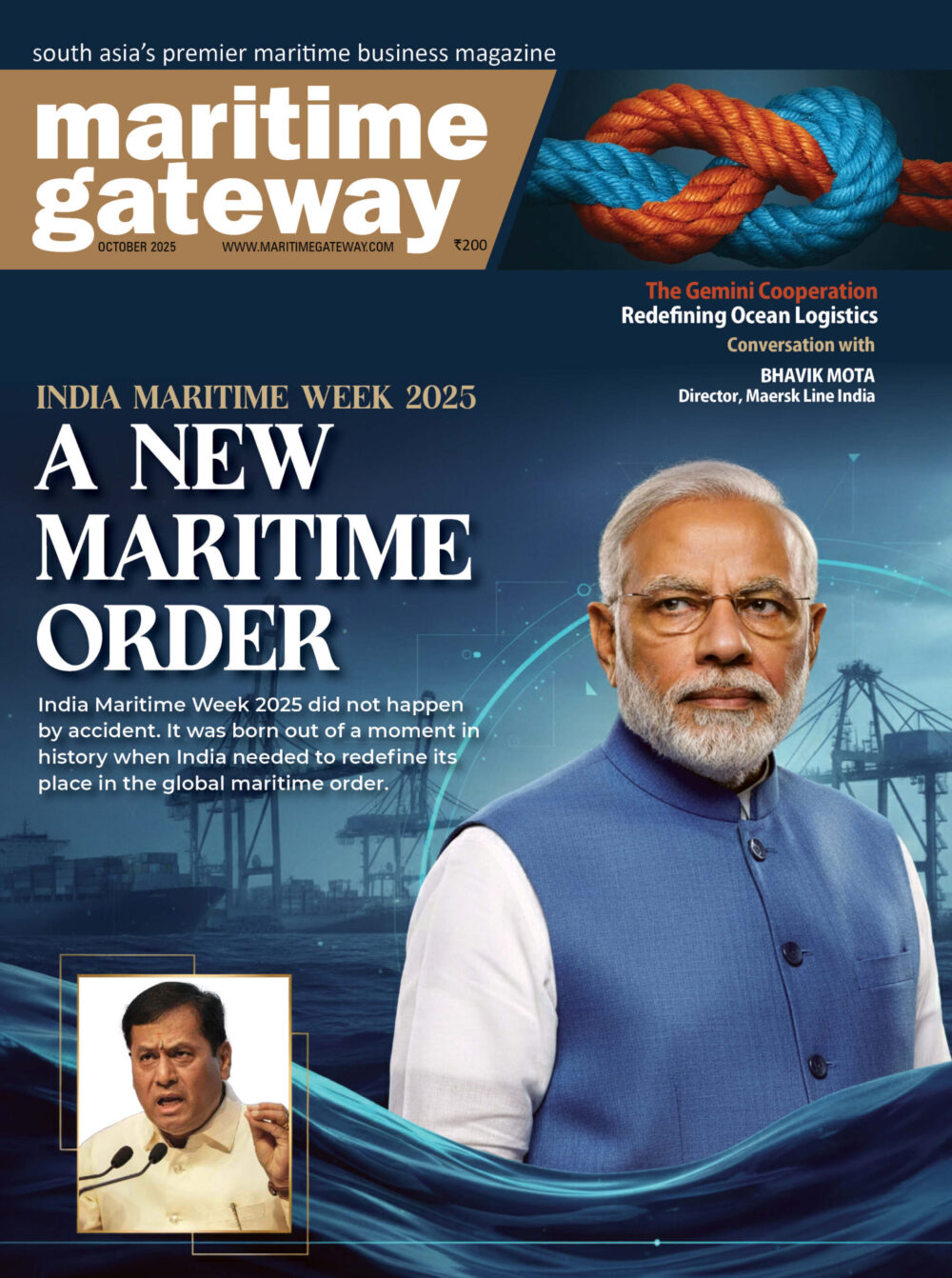Source: ET Infra
The Ministry of Ports, Shipping, and Waterways is grappling with a contentious demand brought by the International Financial Services Centres Authority (IFSCA) to permit entities operating out of the Gujarat International Finance Tec-City (GIFT City) to own and run foreign flag ships without any licensing requirements stipulated under local laws as it looks to offer more sops to entice ship operators to the tax haven.
The demand, if and when conceded, is bound to have huge repercussions for Indian shipping as it comes at a time when the Amrit Kaal Vision 2047 for the maritime sector calls for boosting Indian flag tonnage – from a paltry less than 1 percent of the global fleet – to back the country’s ambitions to become a $32 trillion economy by 2047 with exports contributing some $5-6 trillion.
“It’s difficult,” said a prominent Mumbai-based shipping lawyer. “Statutorily, it is not possible,” he quipped, adding that the law will have to be amended to make this happen.
Section 406 of the Merchant Shipping Act, 1958 mandates that Indian ships and chartered (foreign) ships have to secure a license from the Directorate General of Shipping (DG Shipping) to operate.
“No Indian ship and no other ship chartered by a citizen of India, or a company (or a co-operative society) shall be taken to sea from a port or place within or outside India except under a licence granted by the Director General,” per Section 406 of the M S Act.
Besides, registration of ships under the Indian flag is mandatory under the M S Act.
“Every Indian ship, unless it is a ship which does not exceed fifteen tons net and is employed solely in navigation on the coasts of India, shall be registered under this Act. No ship required by sub-section (1) to be registered shall be recognised as an Indian ship unless she has been registered under this Act,” states Section 22 of the M S Act.
The Directorate General of Shipping is India’s maritime regulator that oversees and implements the country’s shipping laws and rules.
The trigger for IFSCA’s proposal follows a demand made by some Dubai and Singapore-based firms looking to set up ship leasing and operating units in the GIFT City but said they are hindered by the tough rules and regulations despite a slew of tax concessions offered by the government.
These ship operators, through IFSCA, are seeking a “carve out” from the provisions of Section 406 and Section 22 of the M S Act for GIFT City entities.
Ship operators compete globally in the ‘spot’ market for international cargo and often need to confirm the charter of the vessel within a matter of hours, if not less, said a Dubai-based ship operator. The market is fiercely competitive, with ship operators based in various jurisdictions competing to charter ships and cargoes available in global markets.
“In such a competitive scenario, ship operators can ill afford to spend time and efforts in obtaining the license (from DG Shipping) to lease vessels (under Section 406 of the M S Act),” the operator said.
“In the chartering domain where confirmation has to be provided to ships within a matter of hours, a delay of 24 hours or more for obtaining the license makes operating from the jurisdiction unviable. This is one of the key reasons for Indian operators (ship operators of Indian origin with Indian capital) setting up shops in other jurisdictions like Singapore and Dubai, which do not have such requirements,” he argued.
These operators have allayed concerns that the advantage available to Indian flag ships under the government’s so-called ‘Right of First Refusal’ (RoFR) policy would be jeopardised if exemptions from Section 406 of the M S Act are granted to GIFT City entities.
The right of first refusal is a government-mandated cargo support policy for domestic fleet owners during public tenders.
The exemption is sought for GIFT City entities only and entities chartering from the domestic tariff area (DTA) regime will continue to be licensed under Section 406, they submitted.
Besides, the circular issued by the DG Shipping in 2021 for exercising the right of first refusal states that “The chartering/engagement of vessels through tender process shall only be applicable for open/global tenders and chartering/engagement by other means shall be considered as “chartering/engagement through non-tender processes”.
“It is clear from the above circular that RoFR provisions are only applicable for chartering/engagement of vessels procured through open/global tenders only. As ship operators and lessors do not use this route for chartering of vessels, we would have no objection if entities in GIFT City which use the tender process as identified in the above-mentioned notification continue to be subject to requirement under Section 406 and are subject to RoFR requirement. Our submission is only for the non-tender chartering process (as identified in the circular) to be exempt from requirement for license under Section 406 as it is time and resource consuming and renders ship leasing operations for ship-operators unviable from the GIFT City. This carve out should serve the interest of the Indian flag,” an operator said.
“We are very keen to move our ship operating and leasing activity from Dubai and Singapore to GIFT City but would be unable to do so till exemption is granted from the requirement of license to charter vessel under Section 406 of the M S Act,” he added.
K Rajaraman, Chairman, IFSCA said that the ship leasing framework in GIFT City is in sync with what is available in other jurisdictions.
The system that prevails in IFSC GIFT City is a tax regime which provides a ten-year tax holiday out of any 15 years and entities setting up units in the GIFT City are also exempt from capital gains tax, GST, stamp duty, and so on.
“This has created a fairly good financial basis for people to look at GIFT City for setting up their leasing platforms,” he said while addressing the ‘India Ship Finance Forum’ organised by Marine Money in Mumbai on 20 February.
More than 8 ship lessors have set up businesses in GIFT City and many more are in the process of applying.
The RoFR rules were amended in October last year to deal with a new category of ship owners domiciled in the GIFT City.
With the rejig, the top priority for exercising the RoFR is given to Indian built, Indian flagged and Indian owned ships followed by Indian built, Indian flagged and Indian IFSC Authority owned vessels.
The second priority will be granted to foreign built, Indian flagged and Indian owned ships followed by foreign built, Indian flagged and Indian IFSC Authority owned vessels.
The third priority will be given to Indian built, foreign flagged and foreign owned ships.
“We are also working with the Ministry of Ports, Shipping, and Waterways to do policy tweaks which will support greater flexibility as well. We hope to make some progress in some time from now,” Rajaraman added.
The industry has been arguing that because of the challenges with getting funds for the Indian flag ships, they should have the ability to fly foreign flag ships.
“From the domestic tariff area (DTA), it is difficult, but can we do that from GIFT City, especially if we are not going to touch India business. If we want to do international business, can we have the ability to fly foreign flags? That’s something which is under consideration (of the government). I don’t know how that’s going to go. But that’s one big ask from the industry side,” Suresh Swamy, Partner, Tax and Regulatory Services, Price Waterhouse & Co LLP, said while speaking at the ‘India Ship Finance Forum’ organised by Marine Money.
The IFSCA’s demand to allow GIFT City entities to operate foreign flag ships without licensing requirements has put the Ministry of Ports, Shipping and Waterways in a cleft stick. This is particularly so because the IFSC GIFT City is seen as a signature piece of reform undertaken by Prime Minister Narendra Modi during his ten-year rule and, hence, the Ministry may not want to earn the wrath of the Prime Ministers Office (PMO), said a government source familiar with the vexed issue that has roiled the Ministry.
If a vessel in the DTA regime brings greater economic value to India, any tweaking in this regard should be mindful of the net economic loss to the exchequer and the impact on Indian tonnage, DG Shipping argued.
Alluding to the Amrit Kaal 2047 Vision document which highlights the growth of India flag tonnage as a key theme, DG Shipping said that some changes were required to make the process of registration of ships favourable to attract more Indian tonnage.
The domestic fiscal system, it said, should be devised in a manner conducive to empower Indian shipping companies.
Given this scenario, the DG Shipping has suggested some options as a way forward to deal with the request of IFSCA.
One is to extend the benefits of the Indian Controlled Tonnage scheme to GIFT City.
The Indian controlled tonnage scheme was introduced in 2014 to facilitate Indian shipping companies participate in the coastal trade of foreign countries which has stringent cabotage laws on condition of flagging in or nationality of crew. Indian shipping companies were given the option of flagging out wherein the effective control of the ships remained within the parent company in India. To address the core issue of competitive disadvantage of Indian shipping companies compared to foreign ones on capex and opex, the Ministry may consider to extend the benefit of Indian Controlled Tonnage scheme to IFSC entities on similar terms and conditions under which an IFSC entity has to flag a certain portion of the vessels under the Indian registry with management and manning through domestic sources, the regulator opined.









